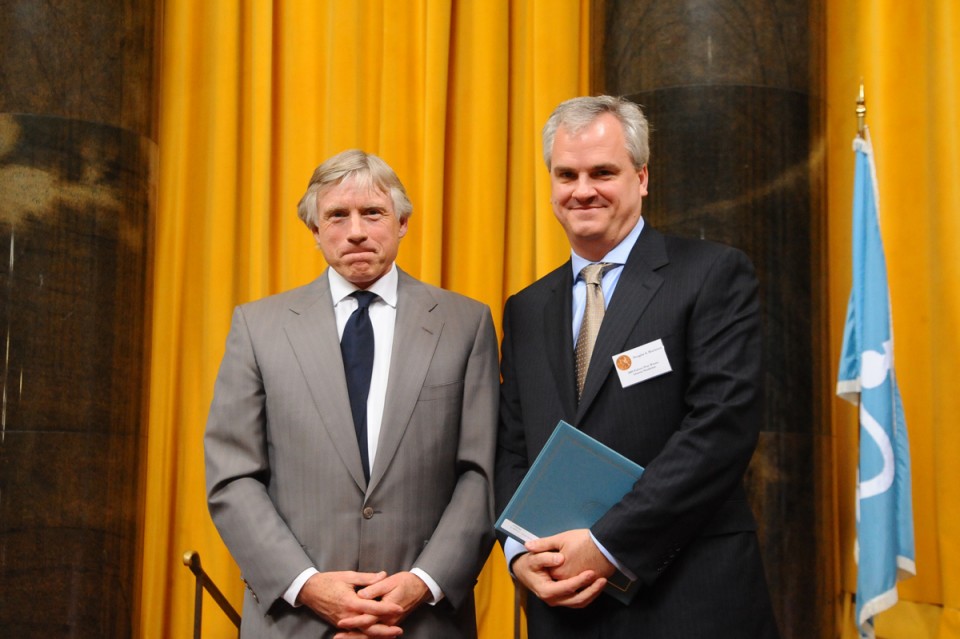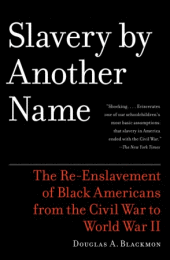
Douglas A. Blackmon is the Atlanta Bureau Chief of the Wall Street Journal. He has written extensively on race, the economy, and American society. Reared in the Mississippi Delta, he lives in downtown Atlanta with his wife and children.
Today, I visited Cape Coast Castle in Ghana.
Hundreds of thousands of enslaved African people were forced here, tortured, and brutalized.
The horrific journey that began here shaped the history of the world. This history must always be remembered, understood, and taught. pic.twitter.com/8GD1WZN1G8
这座奴隶城堡曾被用于关押三角贸易中被运送到美洲的黑奴。在参观过程中,哈里斯和丈夫进入了城堡的地牢,并穿过了“不归之门”,黑奴正是从这个地方被装上船运往大西洋彼岸。整个参观共持续了大约一个小时,其间哈里斯在地牢站了一会儿,并一度掩面拭泪,其丈夫也曾落泪。
参观完城堡后,哈里斯明显情绪激动,其演讲时的声音也显得破碎。她说:“在我们现在所站的这个地方,发生了无数罪行,流过很多血。这些恐怖事件必须永远被记住,不能被否认。”
哈里斯为这次参观准备了一份演讲稿,但事后副总统办公室的一位官员说,她实际发表的讲话大多是脱稿的,脱离了原定的主题。
当地时间3月27日,哈里斯抵达加纳,开始了为期一周的非洲之旅。哈里斯向加纳承诺提供1.39亿美元的协助,用于发展经济和文化以及对抗疟疾。
A precise and eloquent work that examines a deliberate system of racial suppression and that rescues a multitude of atrocities from virtual obscurity.

By Douglas A. Blackmon
 Under laws enacted specifically to intimidate blacks, tens of thousands of African Americans were arbitrarily arrested, hit with outrageous fines, and charged for the costs of their own arrests. With no means to pay these ostensible “debts,” prisoners were sold as forced laborers to coal mines, lumber camps, brickyards, railroads, quarries, and farm plantations. Thousands of other African Americans were simply seized by southern landowners and compelled into years of involuntary servitude. Government officials leased falsely imprisoned blacks to small-town entrepreneurs, provincial farmers, and dozens of corporations—including U.S. Steel—looking for cheap and abundant labor. Armies of “free” black men labored without compensation, were repeatedly bought and sold, and were forced through beatings and physical torture to do the bidding of white masters for decades after the official abolition of American slavery.
Under laws enacted specifically to intimidate blacks, tens of thousands of African Americans were arbitrarily arrested, hit with outrageous fines, and charged for the costs of their own arrests. With no means to pay these ostensible “debts,” prisoners were sold as forced laborers to coal mines, lumber camps, brickyards, railroads, quarries, and farm plantations. Thousands of other African Americans were simply seized by southern landowners and compelled into years of involuntary servitude. Government officials leased falsely imprisoned blacks to small-town entrepreneurs, provincial farmers, and dozens of corporations—including U.S. Steel—looking for cheap and abundant labor. Armies of “free” black men labored without compensation, were repeatedly bought and sold, and were forced through beatings and physical torture to do the bidding of white masters for decades after the official abolition of American slavery.
The neoslavery system exploited legal loopholes and federal policies that discouraged prosecution of whites for continuing to hold black workers against their wills. As it poured millions of dollars into southern government treasuries, the new slavery also became a key instrument in the terrorization of African Americans seeking full participation in the U.S. political system.
Based on a vast record of original documents and personal narratives, Slavery by AnotherName unearths the lost stories of slaves and their descendants who journeyed into freedom after the Emancipation Proclamation and then back into the shadow of involuntary servitude. It also reveals the stories of those who fought unsuccessfully against the re-emergence of human labor trafficking, the modern companies that profited most from neoslavery, and the system’s final demise in the 1940s, partly due to fears of enemy propaganda about American racial abuse at the beginning of World War II.
Slavery by Another Name is a moving, sobering account of a little-known crime against African Americans, and the insidious legacy of racism that reverberates today.
—from the book jacket

Douglas A. Blackmon is the Atlanta Bureau Chief of the Wall Street Journal. He has written extensively on race, the economy, and American society. Reared in the Mississippi Delta, he lives in downtown Atlanta with his wife and children.
Nominated as finalists in General Nonfiction in 2009:
An authoritative, deeply researched book that achieves an extraordinary balance in weighing two mighty protagonists against each other.
A heavily documented exploration of the overlooked suffering of noncombatants in the victory over Nazi Germany, written with the dash of a novelist and the authority of a scholar.
Author and former correspondent, The New York Times
Writer and Book World columnist, The Washington Post
Author, East Hampton, NY
An affecting, deeply reported account of a girl who comes of age during New York City’s homeless crisis–a portrait of resilience amid institutional failure that successfully merges literary narrative with policy analysis.
A gripping account of the overthrow of the elected government of a Black-majority North Carolina city after Reconstruction that untangles a complicated set of power dynamics cutting across race, class and gender.
A sweeping and beautifully written book that probes the American myth of boundless expansion and provides a compelling context for thinking about the current political moment. (Moved by the Board from the History category.)
An elegant and unforgettable narrative about the brutality of illness and the capitalism of cancer care in America.
A searing drama set in chaotic Congo that compels audiences to face the horror of wartime rape and brutality while still finding affirmation of life and hope amid hopelessness.
A painstaking exploration of a sprawling multi-generation slave family that casts provocative new light on the relationship between Sally Hemings and her master, Thomas Jefferson.
A collection of 13 short stories set in small-town Maine that packs a cumulative emotional wallop, bound together by polished prose and by Olive, the title character, blunt, flawed and fascinating.
For their uncovering of a pattern of lies by Mayor Kwame Kilpatrick that included denial of a sexual relationship with his female chief of staff, prompting an investigation of perjury that eventually led to jail terms for the two officials.